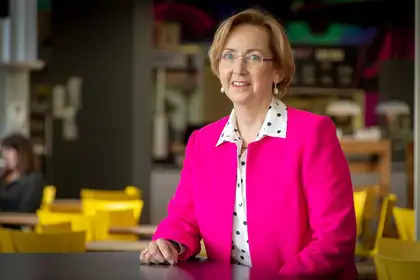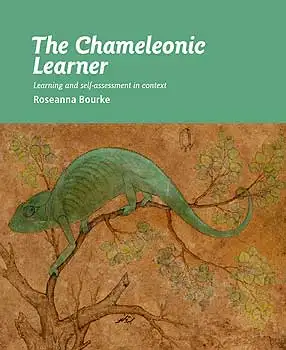
Professor Roseanna Bourke will share her research insights on learning in different contexts in her lecture.
Is learning simply figuring how to pass tests to get good grades? Or does it constitute something deeper, more complex and personal? Educational psychologist Professor Roseanna Bourke will explore varied ideas about learning across the lifespan and cultures in her inaugural professorial lecture this week.
Professor Bourke, based at Massey University’s Institute of Education, has spent her career exploring, researching and teaching about the phenomenon of learning. She will share insights into sociocultural and cognitive theories and her personal observations on what learning means in her public lecture, titled Who’s Afraid of Learning?, this Friday at the Manawatū campus.
Fear and failure are all part of how we learn, she says. Learning is about “the unknown and taking risks in the belief that you can do it. Learners on this view are adventurers; they must be prepared to risk failing – or falling – on the way to learning a new skill.
“The sad reality is that we are more likely to observe this outside school learning, where the stakes of assessment and testing do not influence the learner’s willingness to take a risk.”
As a professor of learning and assessment, she has studied the role of formal assessment (tests, exams, assignments) as well as self-assessment among school pupils and tertiary students. “Learning begins both with knowing, and with the realisation of not knowing,” she says. “Self-assessment is therefore a critical component of being able to learn, and of wellbeing.”
She will discuss philosophical perspectives and quirky examples about how we learn – from Plato to Palmerston North sculptor Paul Dibble, whose bronze sculpture of a tuatara and a dancer outside the Regent on Broadway theatre epitomises, for her, an essential understanding about learning.

Cover of book by Professor Bourke.
'Chameleonic’ learners
Professor Bourke will touch on her earlier research into learning, which revealed that children’s conceptions ranged from “least sophisticated, where they believed learning was to ‘fill up the brain’ and was about knowledge acquisition and recall, through to more sophisticated understandings that learning is about changing the way you see something, and the way you engage with people and the environment around you”.
She coined the term, “the chameleonic learner” – the title of her book – which discusses her study of successful learners who developed a strong sense of self and identity yet could also change and adapt their behaviours according to the context. “Effectively, they could become one person in the mathematics class, another in drama, or in judo class, and another on the rugby field or netball court.”
To demonstrate learning in formal and informal settings, and how well we can adapt learned skills, experience and knowledge to novel situations, she will touch on celebrated examples, such as pilot Chesley Sullenberger, who landed on the Hudson river in New York after a double engine blow-out following a bird strike; young Māori land rights activist Pania Newton, who founded Save Our Unique Landscape to stop Ihumātao, in Māngere, Auckland, from being turned into a housing development; and golf phenomenon Lydia Ko, who became world number one at age 17.
Professor Bourke credits her family life with fostering in her a deep love of learning. When she was informed of her promotion to Professor last November, the first person she told was her 92-year old mother, to whom she is dedicating her talk.
BIO:
Professor Bourke started her professional career as a classroom teacher and later educational psychologist, and went on to complete a Doctorate of Philosophy (PhD) in Education at Massey before heading to Cambridge University as Visiting Fellow for six months (2003). She then worked at the Ministry of Education (2003–06), where she led national research programmes, professional practice advisor teams, and represented New Zealand at an OECD meeting in Paris. From 2007, as director of the Centre for Educational Development, Massey University, she led the teacher advisory service of 70 in-service teacher educators across the central North Island. She currently leads the postgraduate educational and developmental psychology programme, Education Scope of Practice, that prepares registered psychologists.
Event details:
Who’s Afraid of Learning? | Inaugural Professorial Lecture - Roseanna Bourke (Professor of Learning and Assessment)
Friday, 1 November – 3.30pm - 5.30pm
Japan Lecture Theatre, University House, Manawatū Campus
For more info contact Julie Sakai: j.m.sakai@massey.ac.nz